When dealing with a group of children it can be a Herculean task to manage their energy and chaotic whims. Many years ago, I got some very valuable advice from a kindergarten teacher.
When I asked her how they do it, she said: “Simple, constrain the choices.”
Instead of starting the conversation with “What do you kids want to do today?” you start with: “OK, shall we start with the slides or the swings today?”
By coating all of this in the mantle of democracy, the children feel like they have taken part in an important decision. Their voices have been heard! 4 kids voted to start with slides and 2 kids voted to start with swings. And you know what, after we’re done with the slides, we’ll do swings as well. Yeah!
This immediately channels the unbounded energy into a simple-to-manage conversation about sequencing.
Pretty much like the American (or for that matter any) election process.
Hardly ever do you get into a conversation about why painting and reading were not on the agenda? The awareness and consciousness have been bounded within a constrained set.
For most of us, this is how we interpret choices. A vs. B. Swipe left, swipe right. We then pride ourselves (or potentially feel the shame) on making good choices that have led to our success.
We praise a senior manager who climbed through the ranks and made it to her position by consistently making good choices. When the employees bring their proposals to her, she has the wisdom of Sheeba to divine left or right towards the correct outcome.
In this way, we become reinforced in our belief that our decisions are the things that have created our success (or shame).
We fall into the trap that choices reflect character. Dumbledore sums up conventional wisdom when he says to Harry Potter: "It is our choices, Harry, that show what we truly are, far more than our abilities."
Like the Kindergarten children, we are blissfully unaware of the fact that in most cases, what we consider to be a choice, is in fact simply a response to a constrained set of options.
The Matrix
After experiencing the horrors of the Stanford Prisoner Experiment, Philip Zimbardo spent his life studying why supposedly nice and rational people end up making really terrible choices. The genocide in Ruwanda, the Holocast… how did aparently ‘normal’ people end up making monsterous decisions.
In that instant, in their context, they chose what they thought was right, given the options.
Being caught in such a decision matrix leaves you no options outside the convensions of your community pr the pressure of your peers. This phenomenon is one of the key reasons we can’t conquer obesity or polution.
Conventional wisdom that says ‘your choices reflect your character’ squarely put the blame on the consumer, victim or purpotrator. Often turning the victim into a villian.
The increased focus on ‘the lottery of birth’ and systemic privilege over the last couple of years, highlights how where you start off in the system will constrain the options available. The choices and actions you can take inside the system often have very little to do with your character or ability.
This structural awareness is also important when we consider how AI will be rolled out, and the role we give it in our decision-making context.
The interaction between humans and AI in the decision-making process is usually described in terms of loops, mostly variations of OODA (Observe, Orient, Decide, Act) loops:
We can use these models to help us think about how we make our choices. Should you really be in the loop on every decision? Are you in the loop on the key decisions that influence your health and happiness? Which decisions should you delegate?
There is the learning from the airbase colonel. The military is based on a very hierarchical decision-making structure. Yet, the decision on if planes will take off and land on a particular day is made by the low-ranking private who goes out to the end of the runway to verify visibility.
In the strictly hierarchical structure of the military, they understand the disasterous consequences of making a decision without the relevant facts.
More importantly, the colonel is making a choice at the level of outcomes, not actions.
Another story illustrates this point very well.
Event horizon
The receptionist at a hotel in downtown Manhattan gets a call from room 114. The air-conditioning unit is broken (in mid-August). In the baking heat of downtown Manhattan, this is an unbearable situation so the shift manager calls the local electrician. $300 and three hours later, room 114 is a comfortable 70 degrees Fahrenheit (being America) again.
Customer Happy, Shift Manager Happy -> Gets a promotion
Now the shift manager is the general manager for the hotel and realises: “Holy Moly, we are spending thousands on repairs for those outdated window-mounted air-condition units.” Her new horizon of choices includes swapping out all the individual units for a central air-conditioning unit.
The new unit doesn’t break down and customer satisfaction increases: better views and less noise! And no disruptive visits from the air-con mechanics!
Customers Happy, Business Owner Happy, General Manager Happy -> Gets a promotion
Now the general manager becomes global head operations for the whole hotel group and realises: “Holy Moly, our hotels are outdated, expensive to run, and an environmental liability. Our customers want green and clean.” She decides to do away with air-cons entirely by using the latest passive building climate management techniques.
The chain wins global awards for its great eco-friendly profile and attracts a higher paying more exclusive set of customers…
Customers Happy, Business Owners Happy, Planet Happy
Where you stand in the system fundamentally shifts what you think a good decision is. You see completely different options depending on how you set your time horizon and stakeholder definition.
The question I’ll leave you with is: Would the shift manager have gotten the promotion if they suggested passive building climate management?
So our perception of choice is highly affected by our position in a system. Our cumulative experiences also form a kind of learning and evaluation framework that can distort choices just as much.
Blinded by experience
We all suffer from the illusion that we learn from experience. We take a look at the choices we made, then judge them as having been either good or bad choices.
In reality, the consequences of these choices are often vastly removed in time and space from the moment and context in which we made them. As in the case with the hotel chain, we often only see the consequences of our choices when we recalibrate for time.
I often joke about senior managers moving faster than their disaster, in other words staying two steps ahead of the chaos they have created.
The story often goes like this:
Business is in trouble. Declining sales, loss of public trust and bad image.
Enter the hero
Reorganises, fires old consultants, brings in new consultants and agencies. Cuts costs and generally revs up the engines
Sales increase because the world notices the changes
Hero gets the recognition and attention
Hero gets headhunted to another company
Unsustainable cost-cutting, reduced product quality and stretched organisation that lost its institutional memory crashes down
Business is in trouble…
The reality is that the “Hero” never sees the full cost or consequences of their actions. The economic metabolic rate of the system is too slow to confront the person with the true “karma” of their actions.
They will forever live in the illusion that they are the hero, as long as they move faster than their disaster.
Choice without real feedback is simply Ego.
Many consultancies and agencies live this illusion to the extreme. Due to the fact that they never see the minutiae of implementation, they think a round of applause at the final presentation = success. Not seeing or knowing the impacts and consequences of your choices means you never learn from experience.
They are fundamentally confusing reactions for results. Confusing an emotional response to a situation for the fundamental shift in energy.
Think about that great job interview, where you had such amazing energy and people were so nice. Only to be told on the call that you didn’t fit the profile, or another candidate was better suited.
Reaction ≠ Results
If you are navigating by reactions instead of results, you are simply moving faster than your disaster.
And quite often you are artificially reducing your set of options because of the anticipated “reactions.”
Prototype and Iterate
I love Regina Dugan’s famous TED talk. Her core provocation is: "What would you attempt to do if you knew you could not fail?"
What Regina does beautifully, is to reframe what a choice is. It is not a destination; it is the start of a learning journey. By pursuing a course of action, we can gather the data about that course of action. Not to justify the choice (and stroke our ego) but to see how the system changes. By doing so, we can uncover new options and choices.
Reframe the decision as a step in a learning journey, rather than a confirmation of your character, ego or agency.
Can we reframe our approach to the way we make choices to be more expansive and responsible? Can we include the future outcomes and look beyond the comforting reactions of the known, to probe into the generative, scary, and challenging unknown?
I’d like to believe that we can improve the choices we make by looking at our place in the ecosystem anew, by shifting our perspective on the outcomes we achieve, and including the right stakeholders to frame the issue.
Let’s take that leap.
Three key take-outs:
What’s the choice?
Are you clear about what you are making a choice about? Quite often reframing the question will open up a whole new world of opportunity and ways to break out of a seemingly unsolvable dilemma. Break out of the constrained set.When to and who should choose?
Do you know when the best time is to make the decision? Choosing too early loses out on the additional data that might influence the choice. Choosing too late might miss the window of opportunity to learn from the consequences. Someone else in your team might be closer to the optimum time and data. Let them make the choice.Reactions vs results
Are you clear about the evaluation matrix for your choice? Are you tracking for real results over time or the immediate reactions of your peers, clients, and friends? Often the right choice will be unpopular, uncomfortable, and unwelcome when measured by reactions.




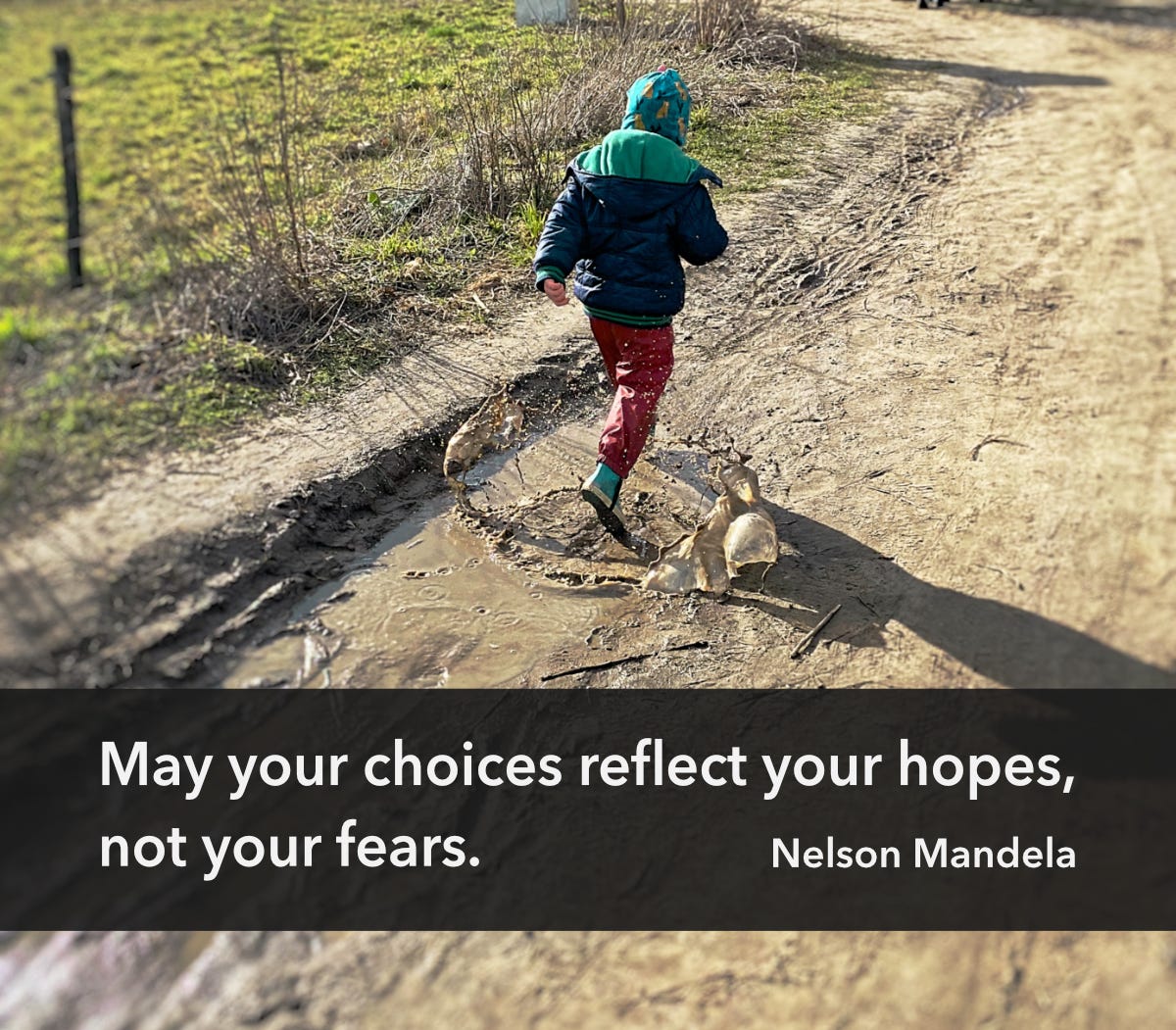
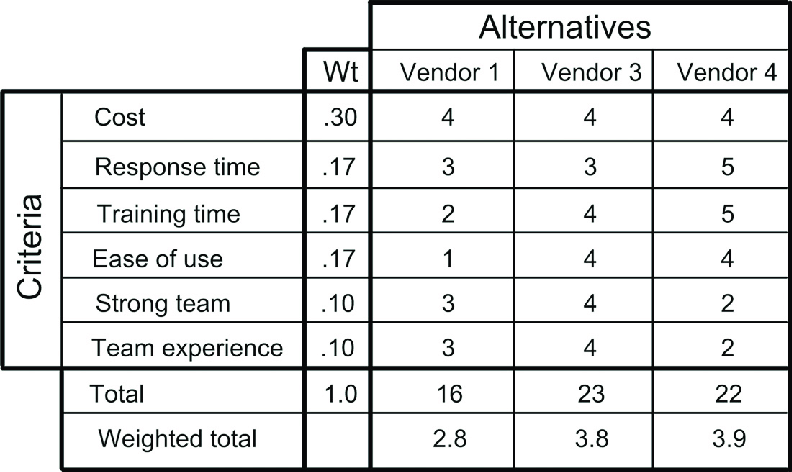
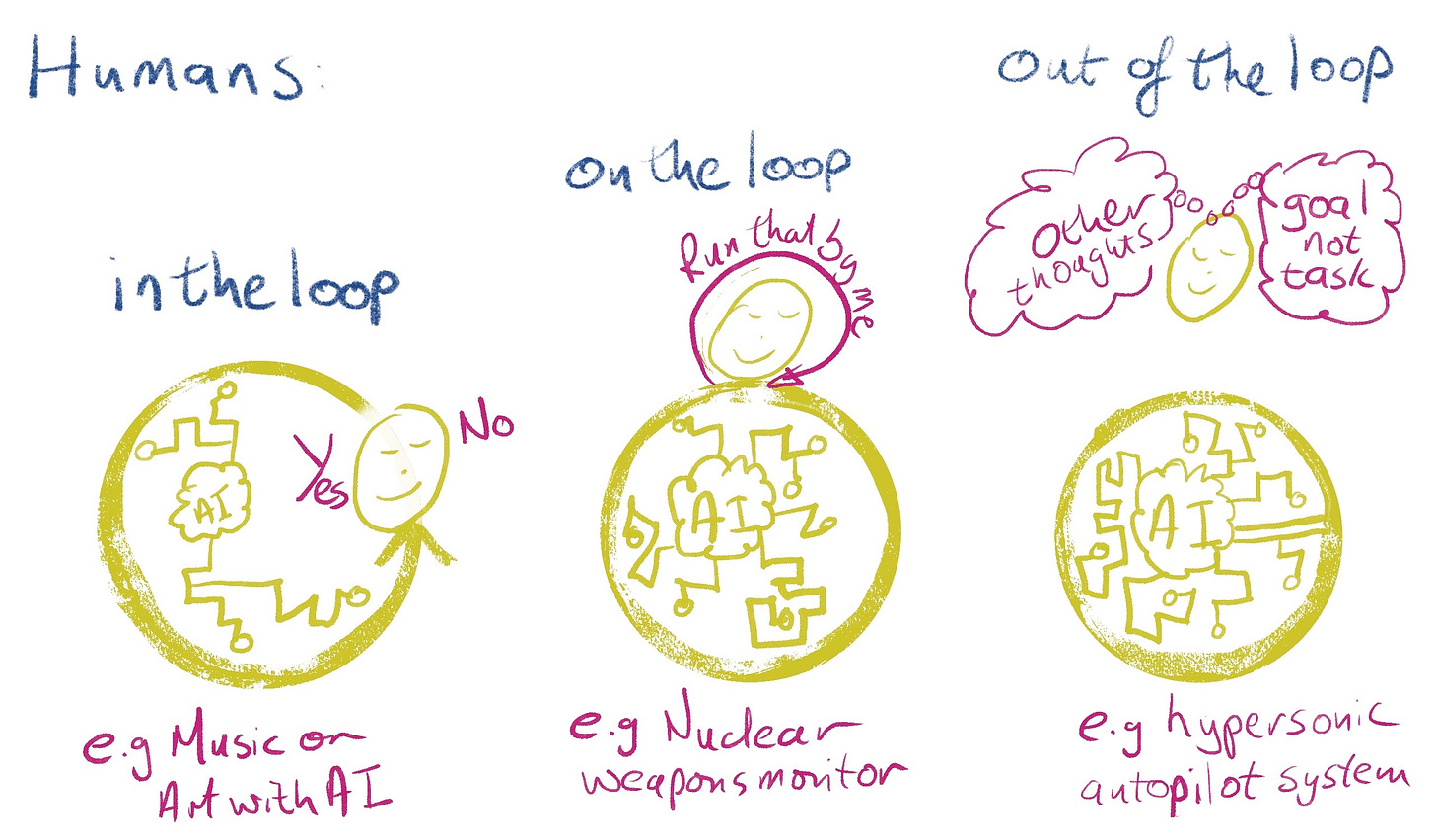
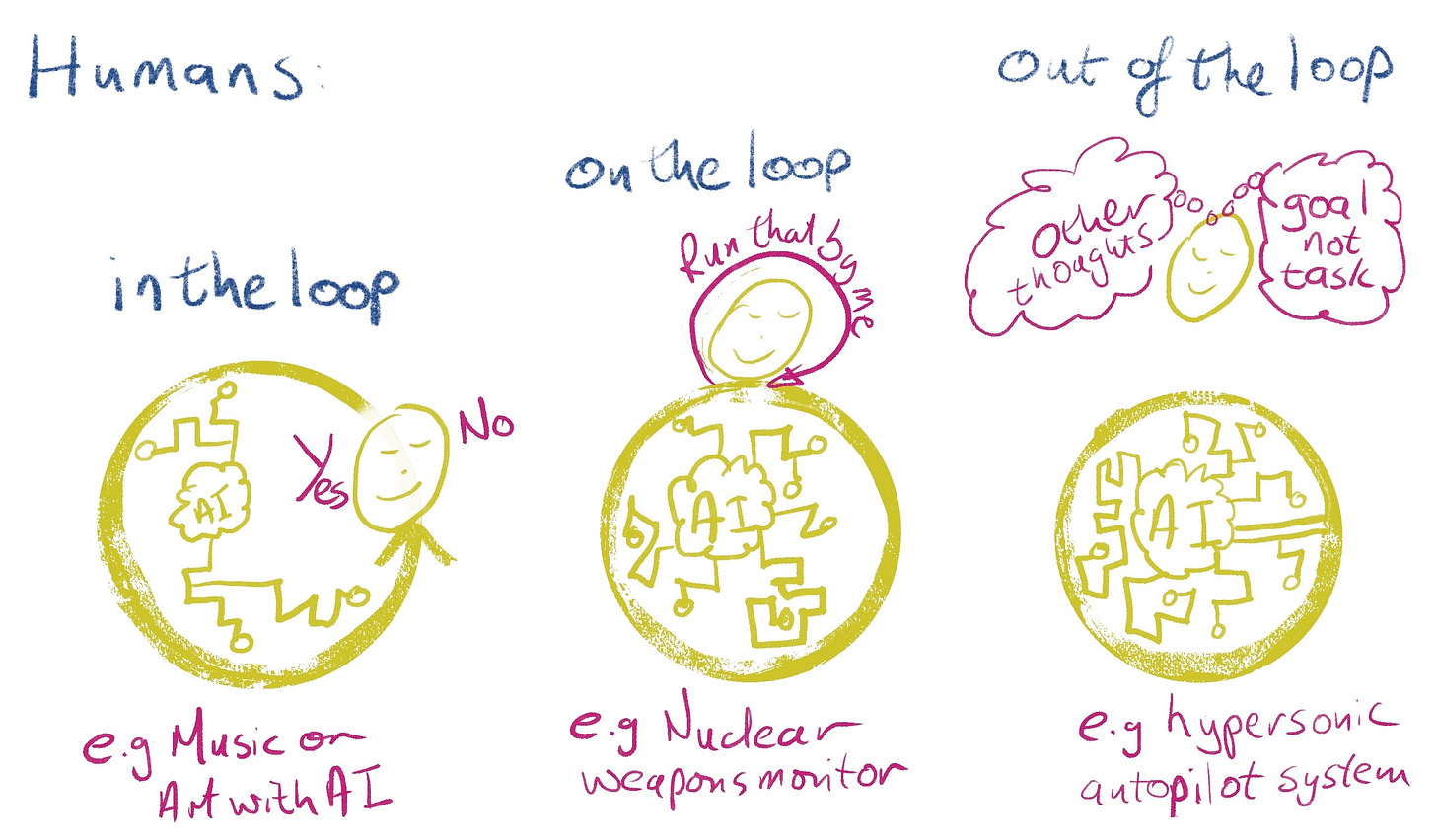
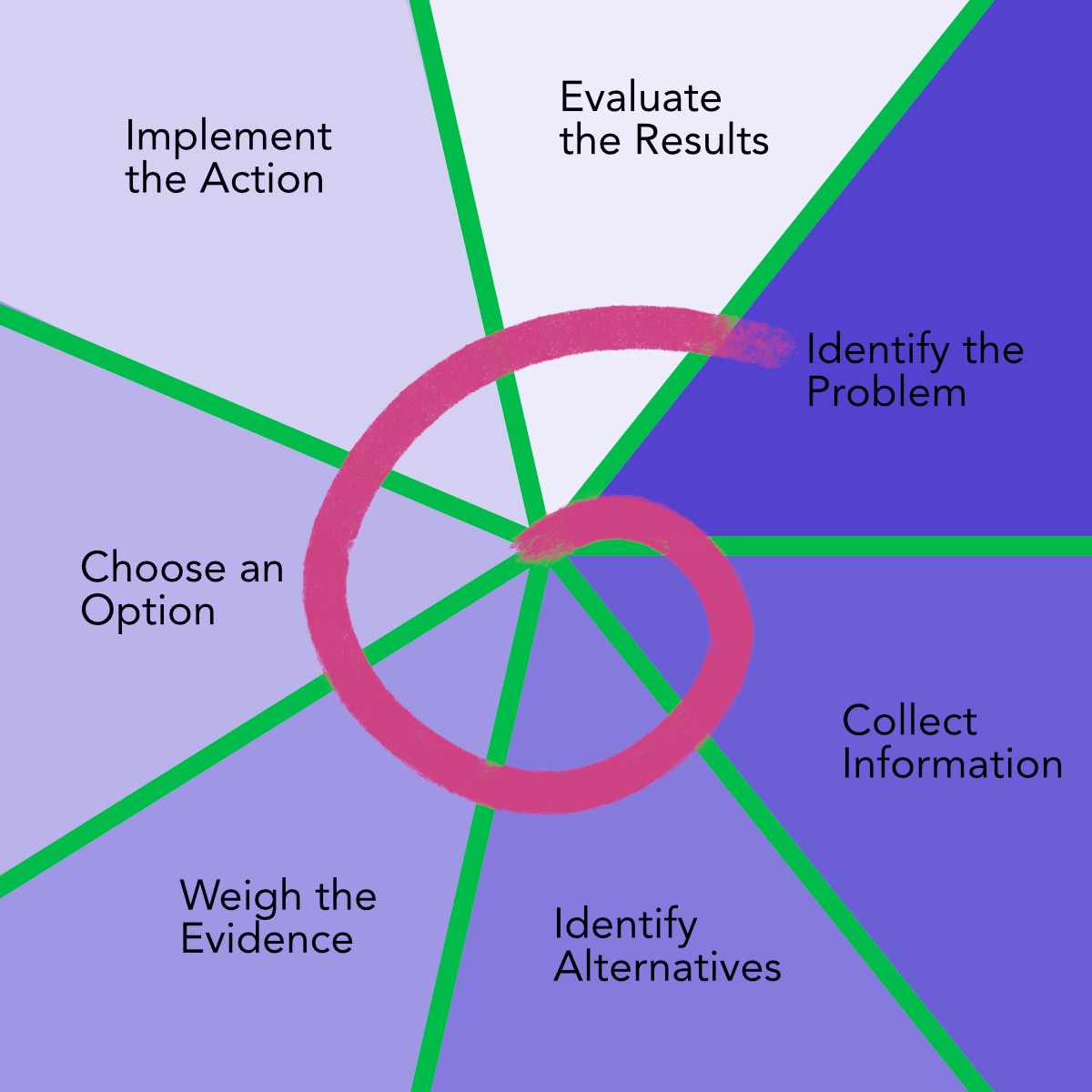






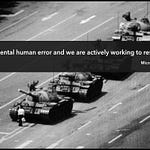



43 Choices